Tassie health workers now getting Covid vaccination after receiving termination letters
Some Tasmanian health workers who initially refused to be vaccinated against Covid-19 have had a change of heart after being sent termination letters. LATEST >>
Tasmania
Don't miss out on the headlines from Tasmania. Followed categories will be added to My News.
SOME Tasmanian health workers who initially refused to be vaccinated against Covid-19 have had a change of heart, the department says.
About 170 workers in the sector had faced losing their job because they did not want to get the jab, were being sent termination letters and have been precluded since October 31 from entering a health facility.
State health secretary Kathrine Morgan-Wicks on Friday said the department was continuing to work with about 126 staff in regard to vaccinations.
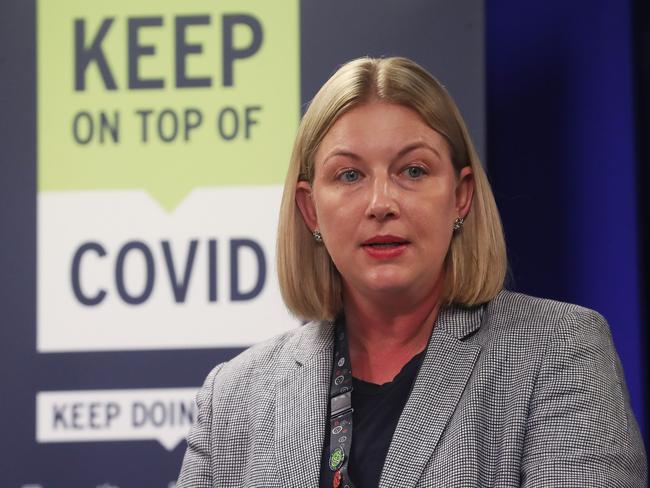
Ms Morgan-Wicks said by January 6 next year, workers were required to have had their second dose of vaccine.
“Time is very quickly running out for those people to get that first dose and to make sure that they are vaccinated,’’ she said.
But Ms Morgan-Wicks said given the number of workers impacted was so small, it was not having a significant impact on the health workforce.
“We’re down to a very small FTE (full-time equivalent) that are actually impacted. For example in our nurses we’re down to around 16 FTE, and noting that we’ve brought on over 840 FTE into the health system since July 2020,’’ she said.
“We are not seeing that impact with that very small group that in the end have chosen not to be vaccinated.”
The full court of the Supreme Court dismissed an argument that the mandating of vaccination was an infringement on the workers’ common law right “to be free from bodily injury”.
They had pledged to take their case all the way to the High Court if needed.
Home Covid quarantine to ease hospital pressure
THE Covid@home care model will allow positive cases recovering at home to be directly taken to hospital if their symptoms deteriorate, avoiding the emergency department and wider hospital facilities.
By providing daily monitoring of temperature, pulse and oxygen saturation through a pack operated by the patient at home, the team of clinicians overseeing the patient can “escalate” the person to hospital if needed, preventing unnecessary exposure to others and clogging up the emergency department.
“This will help to ease pressure on hospitals and keep them operating normally for as long as possible,” state health commander Kathrine Morgan-Wicks said.
With uncertainty surrounding the arrival of the new Omicron strain of Covid-19 in Australia, Ms Morgan-Wicks said vaccination was key to preparedness.
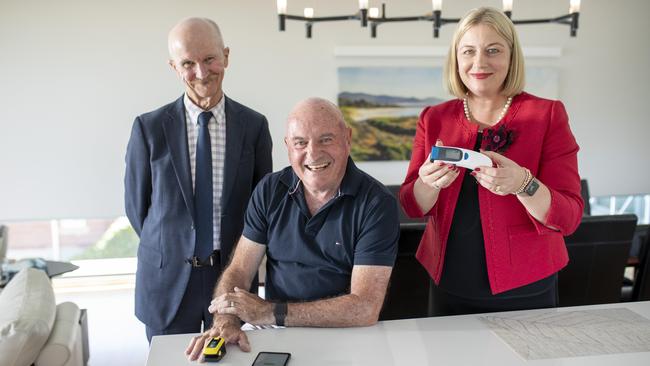
As of Monday, 93.7 per cent of Tasmanians had received their first vaccination and 86.8 per cent are fully vaccinated, and Ms Morgan-Wicks flew the flag for booster shots having received hers that morning.
“We will be closely monitoring this new (Omicron) variant and I am satisfied of the steps that have currently been taken to protect our quarantine environment and our borders, relying on the 14 days quarantine for international arrivals of countries of concern.”
While it is “very early days” of monitoring the new variant, there will be no changes to the current Covid@home availability.
“For those patients who do need more support, there will be clear clinical pathways to regional case management facilities or hospitals,” Ms Morgan-Wicks said.
The facilities include Fountainside in Hobart and the Coach House in Launceston, and Ms Morgan-Wicks said contractual details were being finalised with Wellers Inn in Burnie.
Home quarantine on the cards for Tassie Covid cases
PREPARATIONS have begun for up to 3000 Tasmanians with Covid to be treated at home.
Stephen Ayre, the regional health commander for Covid, said Tasmanians who tested positive for Covid would be interviewed and assessed to determine whether they could quarantine at home.
“We think the majority of patients with Covid, who have been vaccinated, will be in the low-risk category,” Dr Ayre said. “It’s aimed at keeping the lower-risk people out of hospital.
“We do want to maintain the hospital services for those who are most in need.
“There’s really no need to be in hospital if all your parameters are OK.
“It’s about monitoring those low-risk people [because] we know that 95 per cent of the patients in hospital in NSW were unvaccinated.
“So vaccination is still the key.”
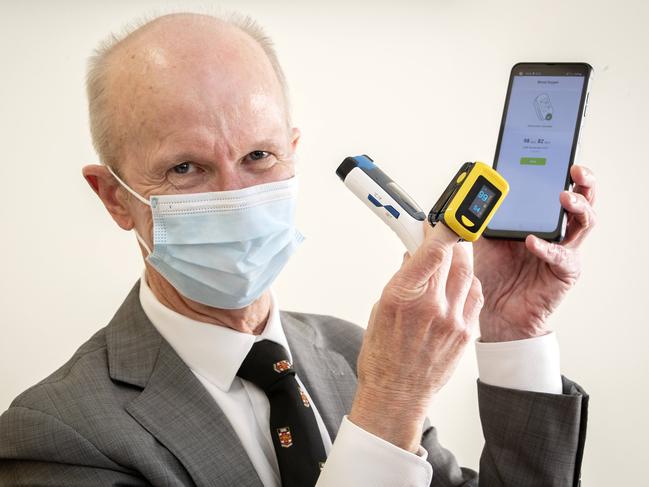
Covid patients suitable to be monitored at home will be given a pack containing a mobile phone, a finger pulse oximeter to measure oxygen levels, and a thermometer.
The department has 2500 devices with another 500 available from their current use with seasonal workers in Tasmania.
Dr Ayre said as well as monitoring patients at home there would be random checks by public health and police.
“You rely on the honesty of people, we have to have the co-operation of the community,” he said.
Patients would have 24/7 access to health professionals and extra staff from other areas, including vaccination clinics, would help monitor patients at home.
Dr Ayre said Tasmania was “unashamedly” using what had been developed interstate and overseas to treat people at home.
“We’ve got the experience from NSW and Victoria, and we’re in a much better position than they were because they were developing this while they were responding to 500 and 1000 cases a day.
“For example, in Western Sydney they had 600 people that were monitoring at home in an area where there’s a couple of million people and they were successfully doing that.
“We’ve had our experience with the hotels, which the other jurisdictions haven’t had, and the vaccinated population is relatively safe.”
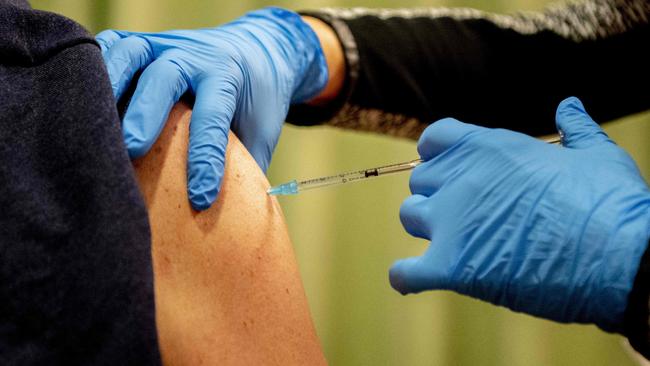
Using Telstra Health’s my health care manager, seasonal workers isolating in Tasmania have already trialled the monitoring system.
“We’ve had the seasonal workers who have very poor IT literacy, you know, they are a younger cohort, and they’ve not had any problems,” Dr Ayre said.
“At the end we surveyed them and 99 per cent were very positive about the use of the devices. It gives people a sense of confidence as well.”
He said support also would be provided from non-government organisations to help people manage Covid at home.
“At home, we’re monitoring their health, but we’re also monitoring all of the other components that enable them to be at home,” he said.
“So it may be access to a new prescription from their GP.
“We’re linking in with the local social supports in the disaster recovery group, so you know, those NGOs that we have good links with.
“The local groups, they will rally around, and they will support with those social things like food or somebody to look after the dog or, you know, that sort of stuff.
“But really, this central point is where they come to, and they say, these are the problems, the issues I’ve got, and then we will then liaise on how to deal with them.”
Dr Ayre said for people who were fully vaccinated, it was largely only those with immune disorders and the elderly who were at risk from Covid.
How home quarantine would work
WHEN the border reopens, Tasmanians who test positive to Covid and pass a risk assessment will be able to be treated at home.
Dr Stephen Ayre said patients able to be monitored at home would be given a mobile phone, thermometer and finger pulse oximeter to measure oxygen levels.
“We interview the patient, go through all the things that we would normally do in our hospital,” Dr Ayre said.
“So we want to know what medications you’re on, who are your carers, have you got any other people at home, who is your GP, are you in the middle of your cancer therapy and those sorts of things, so we try to get a comprehensive picture of that individual.
“If you’re suitable to be monitored at home, a device will be sent to you.”
The instructions for monitoring using the health devices has been translated into several languages and Dr Ayre was confident people who had never used a mobile phone would be able to manage well.
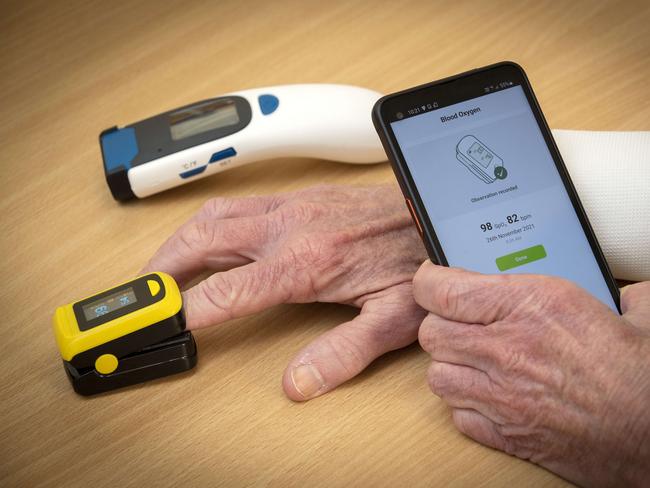
He said whether someone could be treated at home depended on others in the house and how long a person had had symptoms.
“If you’ve been unwell and you’ve been in the home, they’ve probably already been infected,” Dr Ayre said.
He stresses if a person’s conditions worsen they will be able to contact a healthcare professional.
“A decision will then be made as to how urgent the clinical situation is.
“Advice is just a phone call away and we can do routine checks on video.”
People can be treated at Fountainside in Hobart, the Coach House in Launceston or a facility in the North-West.
For people without an internet connection there will be access to the 4G network.
Could Covid jabs be added to Tassie kids’ 2022 book lists?
The government has backflipped on the possibility of delaying the back to school date to accommodate a potential vaccine rollout for children.
On Tuesday, Premier Peter Gutwein told parliament the start of term one could be pushed back if Covid vaccinations were approved for those aged between five and 11.
He said he was awaiting advice from public health officials and the Therapeutics Goods Administration, but that the government was prepared to delay if that’s what was advised.
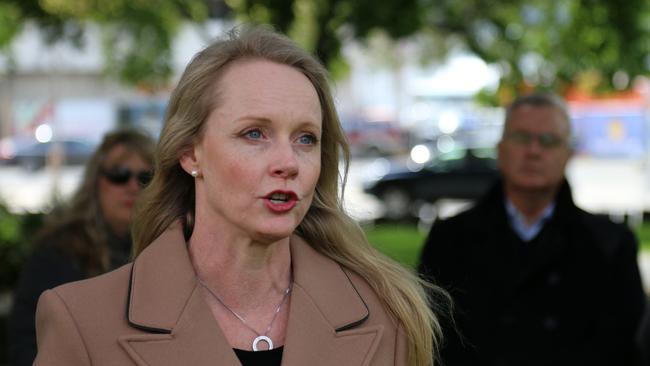
But on Wednesday, Education Minister Sarah Courtney said the expected return date for students remained unchanged.
“My expectation is that we will be seeing young people returning to schools on the ninth of February,” Ms Courtney said.
Ms Courtney said a range of measures would be implemented to reduce the potential transmission of Covid in schools, when borders do reopen, including ventilation improvements.
The Premier was asked his stance on mandating vaccination for education workers, after health workers were provided a deadline to get vaccinated last month, with the risk of job losses for those who refused.
He said a risk assessment was under way.
“The Public Health view was that we should put in place a mandate in terms of vaccination for the aged care sector, the health sector and the disability sector, which came into play last Sunday,” Mr Gutwein said.
Speaking as both a mother and a board member of the Tasmanian Association of State School Organisations (TASSO), Rebecca Churchill said the Premier’s comments on Tuesday raised a number of questions.
“This could mean parents are losing work hours and losing jobs to stay home and look after their kids,” Ms Churchill said.
“If the children cannot be vaccinated, are they going to lose their right to attend school?”
Ms Churchill said the government needed to consult with TASSO, the AEU and schools.
“To leave us hanging toward the end of the year and give us nothing, it creates more panic and stress,” she said.
“He needs to keep us in the loop or come up with a plan and allow us to comment.”
A government spokesperson said a vaccine for those aged between five and 11 would be rolled out as soon as possible, if approved.
“A vaccine mandate for schoolchildren is not and has never been under consideration,” they said.




